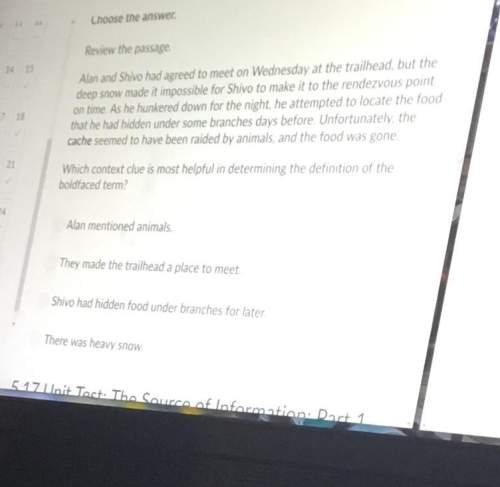(LC)
From "The Tyranny of Things" by Elizabeth Morris
Once upon a time, when I was very...

(LC)
From "The Tyranny of Things" by Elizabeth Morris
Once upon a time, when I was very tired, I chanced to go away to a little house by the sea. "It is empty," they said, "but you can easily furnish it." Empty! Yes, thank Heaven! Furnish it? Heaven forbid! Its floors were bare, its walls were bare, its tables there were only two in the house were bare. There was nothing in the closets but books; nothing in the bureau drawers but the smell of clean, fresh wood; nothing in the kitchen but an oil stove, and a few a very few dishes; nothing in the attic but rafters and sunshine, and a view of the sea. After I had been there an hour there descended upon me a great peace, a sense of freedom, of in finite leisure. In the twilight I sat before the flickering embers of the open fire, and looked out through the open door to the sea, and asked myself, "Why?" Then the answer came: I was emancipated from things. There was nothing in the house to demand care, to claim attention, to cumber my consciousness with its insistent, unchanging companionship. There was nothing but a shelter, and outside, the fields and marshes, the shore and the sea. These did not have to be taken down and put up and arranged and dusted and cared for. They were not things at all, they were powers, presences.
And so I rested. While the spell was still unbroken, I came away. For broken it would have been, I know, had I not fled first. Even in this refuge the enemy would have pursued me, found me out, encompassed me.
If we could but free ourselves once for all, how simple life might become! One of my friends, who, with six young children and only one servant, keeps a spotless house and a soul serene, told me once how she did it. "My dear, once a month I give away every single thing in the house that we do not imperatively need. It sounds wasteful, but I don’t believe it really is. Sometimes Jeremiah mourns over missing old clothes, or back numbers of the magazines, but I tell him if he doesn’t want to be mated to a gibbering maniac he will let me do as I like."
The old monks knew all this very well. One wonders sometimes how they got their power; but go up to Fiesole, and sit a while in one of those little, bare, white-walled cells, and you will begin to understand. If there were any spiritual force in one, it would have to come out there.
I have not their courage, and I win no such freedom. I allow myself to be overwhelmed by the invading host of things, making fitful resistance, but without any real steadiness of purpose. Yet never do I wholly give up the struggle, and in my heart I cherish an ideal, remotely typified by that empty little house beside the sea.
Which three of these central ideas are discussed in Morris’s essay?
Choose one answer from each group. Type the LETTER ONLY for each answer in the correct blank.
Type A, B, or C for Blank 1.
The burden of things
The need for things
The beauty of things
Type D, E, or F for Blank 2.
The value of things
The necessity of things
The absence of things
Type G, H, or I for Blank 3.
The fear of things
The demand of things
The names of things

Answers: 2
Another question on English

English, 21.06.2019 21:30
Plzzz me needs a hyphen or no hyphen 1. laura, a friendly little girl, says hello to everyone she passes 2. my uncle is well known jazz musician 3. our school's winning football record is welll known 4. the angry looking woman was having a heated discussion with the store manager.
Answers: 2

English, 22.06.2019 04:30
Your school has recently decided to start serving genetically modified food as part of school lunches. give a multimedia presentation to the student council arguing for or against the new policy. include engaging visual elements and strong evidence that support your position.
Answers: 2

English, 22.06.2019 04:30
In order really to hate white people, one has to blot so much out of the mind — and the heart — that this hatred itself becomes an exhausting and self-destructive pose. but this does not mean, on the other hand, that love comes easily: the white world is too powerful, too complacent, too ready with gratuitous humiliation, and, above all, too ignorant and too innocent for that.which sentence best explains how the use of parallelism in the excerpt supports baldwin's purpose? a. it proves baldwin's central idea by highlighting the obvious.b. it emphasizes the problems that prevent one from loving the white world.c. it explains why the white world is unable to replace hate with love.d. it enumerates the many ways of dealing with the white world.
Answers: 1

English, 22.06.2019 07:30
Kafka originally referred to gregor's parents as “the mother” and “the father”. however, the translator refers to them as “his mother” and “his father”. why might the translator use “his” instead of “the”? a. the word “his” makes the story smoother to read in english. b. the word “his” allows gregor’s parents to become more central characters. c. the word “his” makes gregor’s parents sound less loving. d. the word “his” creates a more negative tone.
Answers: 1
You know the right answer?
Questions







Mathematics, 17.12.2019 00:31




Computers and Technology, 17.12.2019 00:31









Arts, 17.12.2019 00:31




